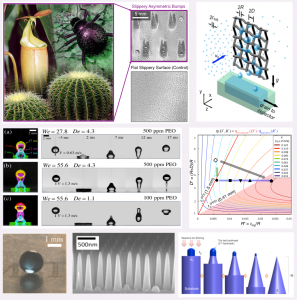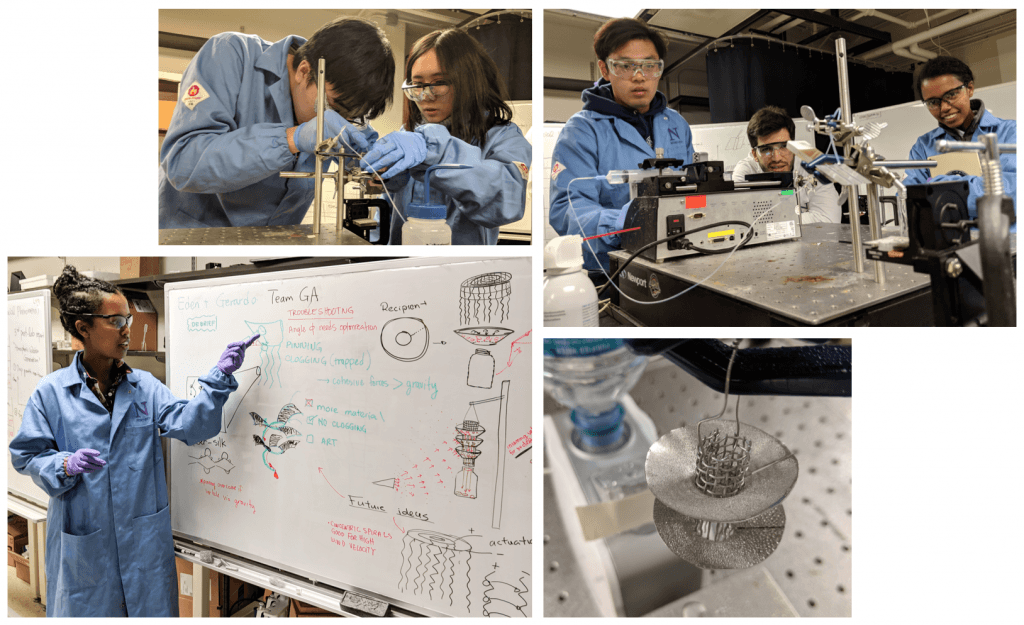Research
The main theme of our group research is “functional surfaces to capture and release multiscale particles in fluids for a sustainable future” to develop “Bio-inspired Interfacial phenOmena for GReen water-Energy-Environment Nexus (BIO-GREEN) Technology”.
Our research and class (ME 395/495 Bio-Inspired Surface Engineering) have been featured on Voice of America (3:35-6:15, just after President Schapiro’s interview).
1. ME 395/495 Bio-Inspired Surface Engineering (Undergraduate/Graduate, Newly-Developed)
In this undergraduate/graduate level course, students will understand interesting properties of natural surfaces (e.g., lotus leaves) and the state-of-the-art bio-inspired research on functional surface design with a focus on mechanical engineering applications for a sustainable future (e.g., water, energy, and the environment). Students will also apply analytical techniques to propose the design of new functional surfaces.
2. ME 395 Experimental Interfacial Phenomena (Undergraduate/Graduate, Newly-Developed)
This hands-on course is for undergraduate and graduate students. At multiple length scales, various intriguing phenomena play an important role as a driving force, source of energy loss, and controlling mechanism for momentum/heat/mass transfer. To experimentally analyze these phenomena, multiple disciplines, ranging from fluid mechanics to heat transfer, thermodynamics, physical chemistry, polymer science, colloid and surfactant science, solid mechanics, optics, etc., should be used as a combined toolbox. The topics covered will include various experimental techniques to analyze interesting nano/micro/macro-scale interfacial phenomena.
3. GEN_ENG 205-3 Engineering Analysis 3 – System Dynamics (All Engineering Major Freshman Students, Teaching since 2017)
This course is designed to provide the two-way critical thinking process – (1) the mathematical description of physical systems and (2) the physical interpretation of solutions for differential equations. Students will be able to model dynamic systems in several domains, focusing on mechanical and electrical systems, and will apply analytical and computational techniques to study the motion of these systems.
4. ME 377 Heat Transfer (All Mechanical Engineering Major Students, Teaching since 2021)
This course is designed to to understand the concepts of heat transfer analysis, including conduction, convection, and radiation modes of heat transfer, to be able to apply these concepts using analytical techniques, and to accurately predict temperatures and heat rates for realistic systems.

